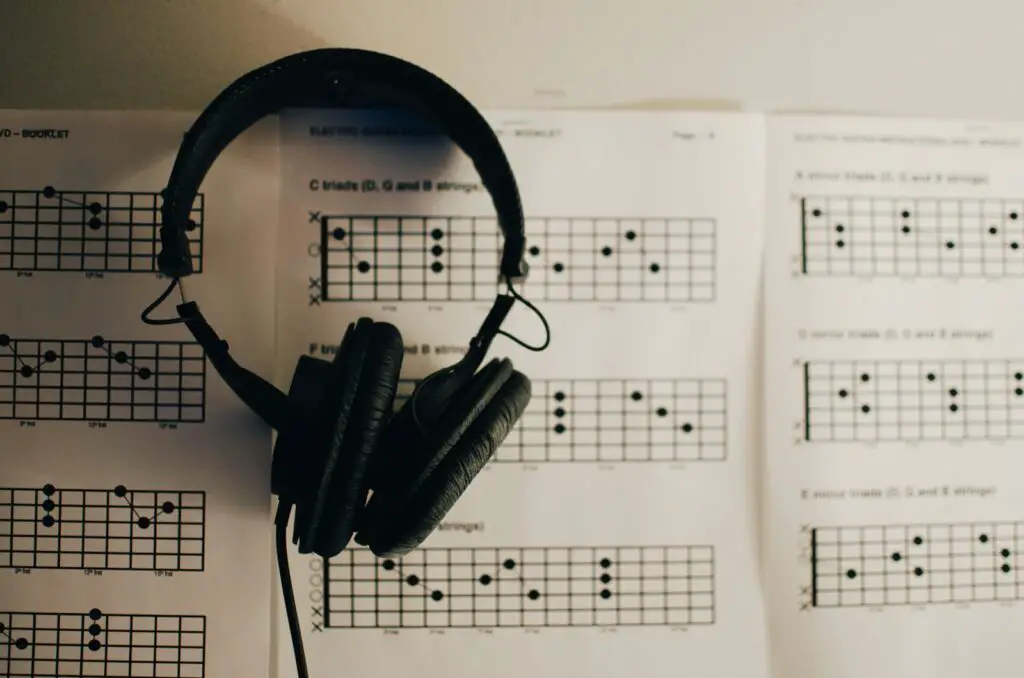Learning guitar scales may not seem like the most exciting aspect of playing the guitar, but it is an essential skill for any guitarist. Whether you are a beginner or an experienced player, understanding and practicing guitar scales can greatly improve your playing and overall musicianship.
In this article, we will explore the importance of learning guitar scales and how it can benefit your playing.
What Are Guitar Scales?
Before we dive into the importance of learning guitar scales, let’s first define what they are. Guitar scales are a series of notes played in a specific order that creates a pattern. These patterns can be played up and down the fretboard, and they are the foundation of melodies, solos, and improvisation.
There are many different types of guitar scales, but some of the most common include major scales, minor scales, pentatonic scales, and blues scales. Each scale has its unique sound and can be used in different musical contexts.
Improves Finger Dexterity and Technique

One of the most significant benefits of learning guitar scales is that it improves your finger dexterity and technique. As you practice scales, you train your fingers to move quickly and accurately across the fretboard. This skill is crucial for playing more complex pieces and solos.
Additionally, practicing scales can help you develop proper finger placement and hand positioning, which can prevent injuries and improve your overall playing technique.
Enhances Music Theory Knowledge
Learning guitar scales also helps you understand music theory better. Scales are the building blocks of music, and by learning them, you are gaining a deeper understanding of how music works. You will start to recognize patterns and intervals, which can help you learn songs faster and improvise more effectively.
Knowing scales also allows you to communicate better with other musicians. When jamming or playing with a band, you can easily communicate which scale you are playing in, and everyone can follow along and improvise together.
Improves Soloing and Improvisation Skills

by Fito García
One of the most exciting aspects of playing the guitar is soloing and improvising. By learning guitar scales, you are equipping yourself with the tools to create your solos and improvise over chord progressions.
Scales provide a framework for soloing, and by practicing them, you will start to develop a better sense of which notes sound good over different chords. This skill is especially useful for playing blues and jazz, where improvisation is a crucial element of the music.
Expands Your Musical Repertoire
Learning guitar scales also expands your musical repertoire. As mentioned earlier, there are many different types of scales, each with its unique sound. By learning different scales, you are adding new sounds and flavors to your playing, making you a more versatile musician.
For example, learning bass guitar blues scales can add a bluesy and soulful sound to your playing, while learning minor scales can add a darker and more melancholic tone. The more scales you learn, the more options you have when creating music.
Helps with Ear Training

by Tadeusz Lakota (https://unsplash.com/@tadekl)
Ear training is an essential skill for any musician, and learning guitar scales can help with this. As you practice scales, you will start to recognize the intervals between notes and how they sound in different contexts. This skill is crucial for playing by ear and transcribing music.
Additionally, practicing scales can help you develop a better sense of pitch and tuning. By playing scales, you are training your ear to recognize when a note is in tune or not, which is crucial for playing in tune with other musicians.
How to Learn Guitar Scales
Now that we have explored the importance of learning guitar scales let’s discuss how you can start learning them.
Use a Guitar Scales Book
One of the most common ways to learn guitar scales is by using a guitar scales book. These books provide a comprehensive guide to different scales, including diagrams, fingerings, and exercises. They are a great resource for beginners and experienced players alike.
When choosing a guitar scales book, make sure to find one that is suitable for your skill level and musical interests. Some books focus on specific genres, such as blues or jazz, while others cover a wide range of scales.
Take Lessons from a Guitar Teacher

Another way to learn guitar scales is by taking lessons from a guitar teacher. A guitar teacher can provide personalized instruction and help you develop a practice routine that works for you. They can also answer any questions you may have and provide feedback on your playing.
If you are serious about improving your guitar skills, investing in lessons from a qualified teacher can be highly beneficial. They can also introduce you to new scales and techniques that you may not have discovered on your own.
Use Online Resources
In today’s digital age, there are countless online resources available for learning guitar scales. You can find instructional videos, articles, and even interactive tools that can help you learn scales such as this interactive scale learning website that has a virtual fretboard this is the scale of C but you can get more on the website and app
Some popular online resources for learning guitar scales include YouTube channels, guitar websites, and apps. These resources are often free or low-cost, making them accessible to anyone with an internet connection.
Real-World Examples of Guitar Scales in Action
To better understand the importance of learning guitar scales, let’s look at some real-world examples of how they are used in music.
“Stairway to Heaven” by Led Zeppelin

The iconic guitar solo in “Stairway to Heaven” by Led Zeppelin is a perfect example of how scales are used in music. The solo is played in the A minor pentatonic scale, with some added notes from the A natural minor scale. This combination creates a haunting and melodic solo that is instantly recognizable.
“Sweet Child O’ Mine” by Guns N’ Roses
Another famous guitar solo that utilizes scales is the one in “Sweet Child O’ Mine” by Guns N’ Roses. The solo is played in the E minor pentatonic scale, with some added notes from the E blues scale. This combination creates a bluesy and energetic solo that perfectly complements the song.
Conclusion
Learning guitar scales may not be the most exciting aspect of playing the guitar, but it is an essential skill for any guitarist. It improves finger dexterity and technique, enhances music theory knowledge, and expands your musical repertoire. It also helps with soloing and improvisation skills and can improve your ear training.
Whether you use a guitar scales book, take lessons from a teacher, or use online resources, make sure to incorporate scales into your practice routine. With dedication and practice, you will see a significant improvement in your playing and overall musicianship.